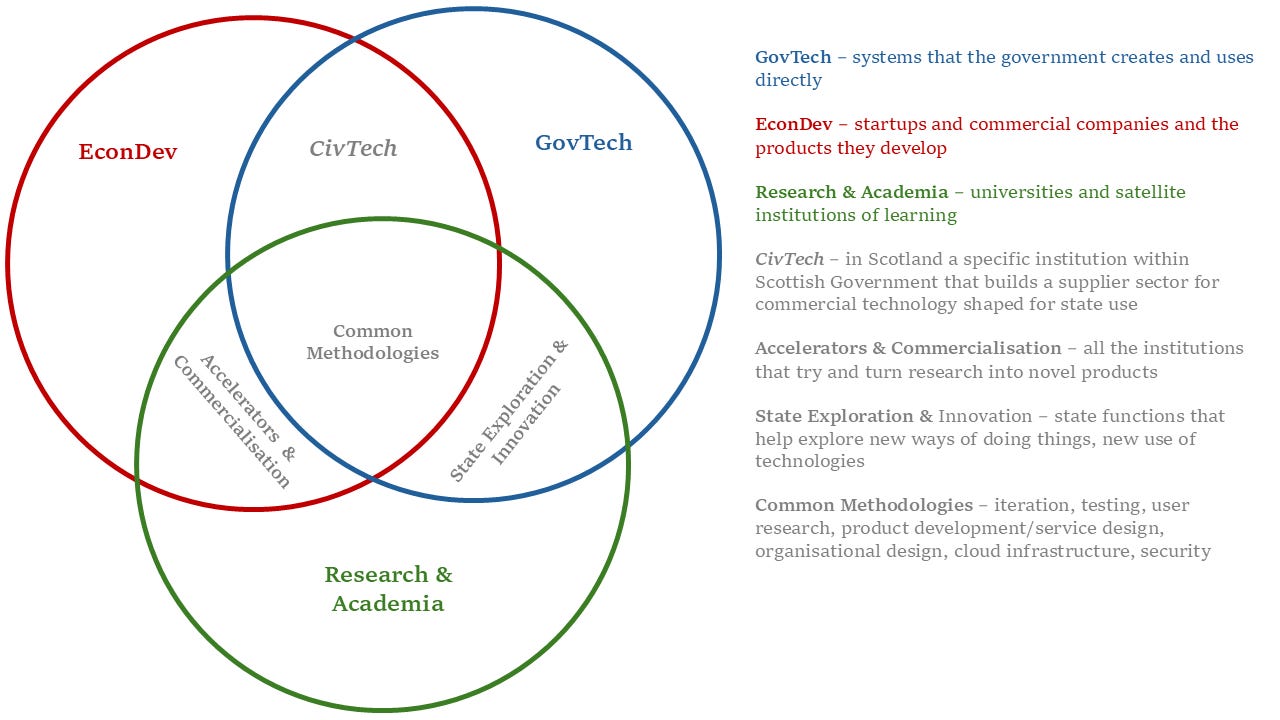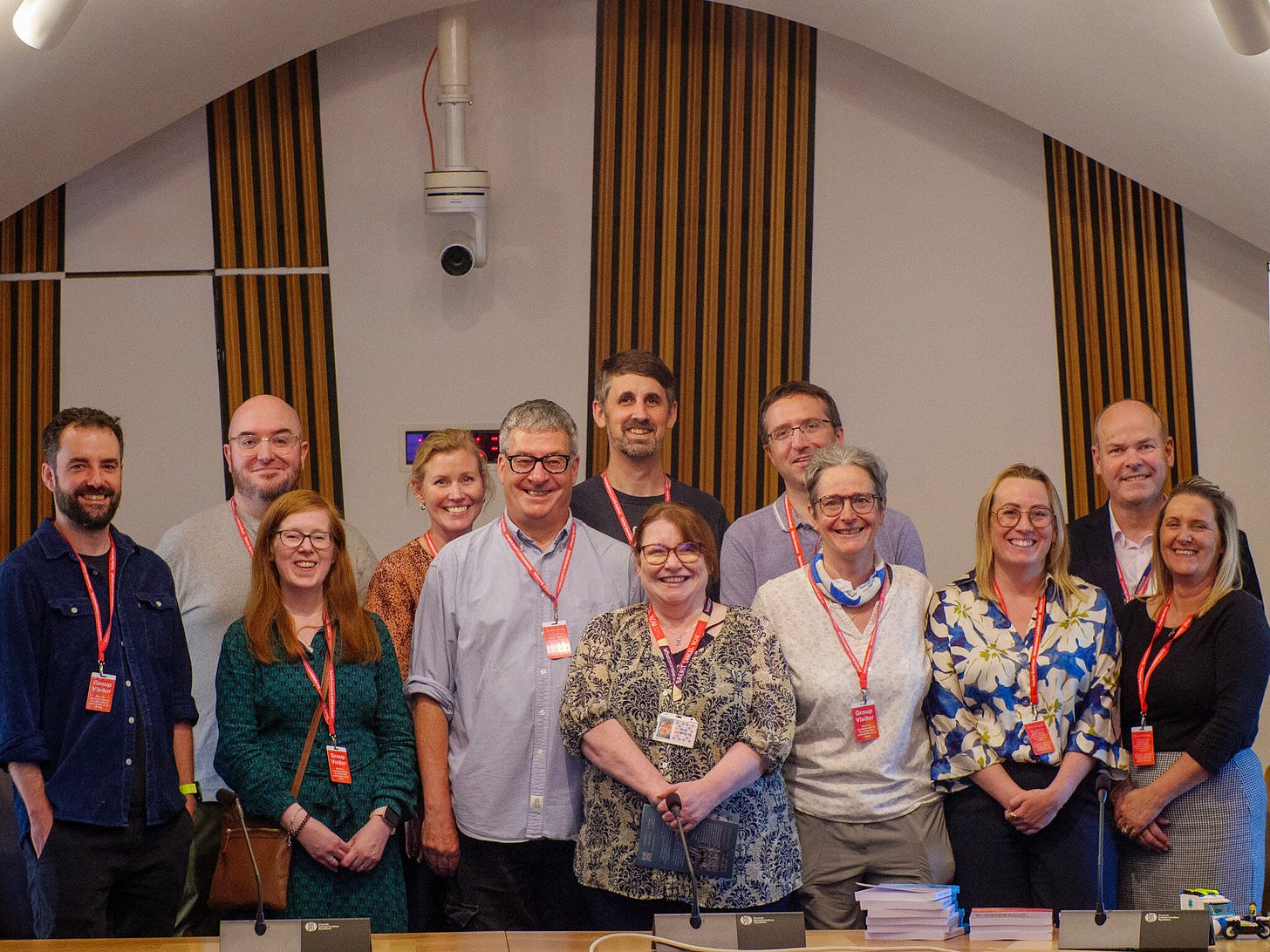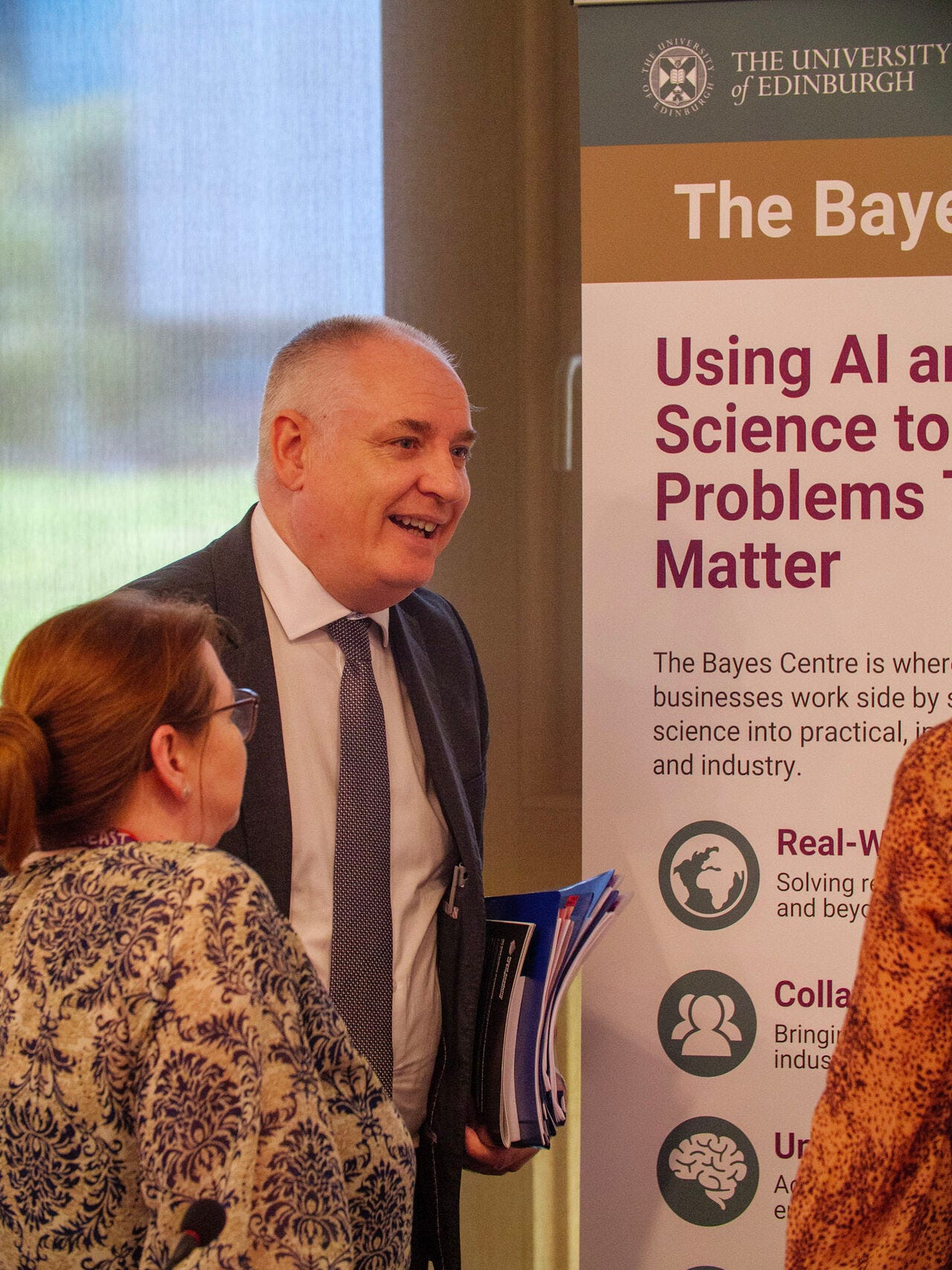In from the cold
Integrating the GovTech ecosystem with the wider ones
Technology is not developed in a vacuum, companies do not emerge de novo, spontaneously created from nothing. Government departments do not create state systems on their own.
Thriving and successful tech usage springs from an ecosystem spanning law and taxation, technical standards, education and training, finance as well as industry practices, networks of people built within and between other tech companies.
A lot of work has been done by a lot of people to build a great tech ecosystem in Scotland for commercial companies. It is integrated well with academic and research institutions. There is once again a nascent ecosystem for GovTech - and by GovTech I mean software systems designed, written, deployed and maintained by civil servants and other public servants who work for health boards, local authorities or agencies.
There are good reasons why GovTech stands apart from commercial tech. At one level there is a great deal in common, a data architect is a data architect, a server rack is a server rack. But there is a reason that Product Management in the private sector and Service Design in the public sector have different names - even though they are clearly related - cousins rather than siblings.
And the shared overlap means it’s time for GovTech to come in from the cold. The GovTech ecosystem needs to be more tightly connected to the others.
The map is not the territory, but it helps to have it
We can map them:
In Scotland the Economic Development ecosystem embraces organisations like:
TechScalars
CodeBase
The Turing Festival
Glasgow Innovation District
EIE
TechMeetup Glasgow/Edinburgh
AdJam/Rookie Oven
Code In The City
These support a myriad of companies large and small.
The research ecosystem involves a host of organisations, including:
the universities
Research Data Scotland
The Bayes Institute (and its range of programmes)
the Smart Data Foundry
The National Robotarium
and in particular supports a range of accelerator and commercialisation programmes at Universities that aim to take research into new company formation and commercialisation.
The GovTech ecosystem is smaller, spanning:
CivTech - the Scottish Government programme that brings the public, private and third sectors together to build things that make people’s lives better
GovCamp Scotland
OneTeamGov Scotland
Internal government training events including things like Civil Service Live! and UK Cabinet Office training
and Scotland-based activities of UK wide movements like Data Camp, Camp Digital, etc, etc
in addition to networks that never venture north of the border but which nonetheless Scots participate in.
Government is government, and civil servants have different needs, ethos, and internal culture to their private sector equivalents, but at the core there are shared elements across these ecosystems, in particular at the methods level: – iteration, testing, user research, product development/service design, organisational design, cloud infrastructure, security and so-on.
I spent 20 years in the EconDev ecosystem, speaking at tech meetup, founding the first iteration of Turing, working in CodeBase, organising events. I got my Research Fellowship at Scottish Government with help (in part) from folks from that world who can gone in to government. And during my time in VQ I met a lot of old faces - so the boundaries between public service and private enterprise are more porous than you might think.
A small beginning
We took the first steps before the summer, gathering as much of the tech ecosystem as we could up the parliament:
Putting the case to Ministers:
But this has to be just the start. Digital technology as a sector needs to step up and we need to make our voice heard in the highest counsels of the land. This sort of thing is problematic for civil servants - being as they are creatures of the executive and not the parliament.
It is unambiguously the case that in matters of functional requirements (what state systems should do) the politicians are the masters and the civil servants are the, well servants, its says it right there.
But as to non-functional requirements (how the state systems do what they do) - in this aspect civil servants, as practitioners are peers of the politicians, in and out of government.
The political class cannot and will not develop a vision for APIs, meta data standards, service design protocols and so on. But the development and enforcement of things of this nature are essential for excellence in public service. And their implementation will have impact on the scale of a century and not a parliamentary term. They are too important to be left underground, undiscussed, in the realm of the techies. This work must be subject to public scrutiny by specialists and civic organisations. “But the ordinary citizen can’t understand this”, you cry. The ordinary citizen (and much of the political class) don’t understand the budget, but budgetary scrutiny, driven by experts, is key to our political life.
As we work across ecosystems we need to develop protocols and boundaries that allow civil servants to participate in debates where they are peers (non-functional matters) and step back into the shadows in debates where ministers should properly lead (functional matters).
A vision
One of the best sessions at the Turing Festival this year was Taavi Kotka - the first digital CIO of Estonia. He talked about how Estonia became the leading digital state and I sat there acutely conscious that lots of people I knew from the Economic Development ecosystem where there, and nobody from Gov Tech side of the house.
We need to take active steps to change that - and to recognise that ecosystems and technology don’t just support company foundation, but also state innovation. Moving to a world where there are more porous boundaries between government and the private sector will be awkward, if not painful.
Private sector people, used to asserting that they are the best, the most dynamic, will need to learn a bit of humility and recognise that they simply don’t understand government. The wrecking ball idiocy of DOGE in the US and its role in the coup and collapse of constitutional government should be a sobering moment for lots of people who drunk too much of the tech bro kool aid.
And the public sector will need to come out of their shell a bit, put their heads above the parapet and reach out.
When we launched the Turing Festival we did it in the Edinburgh Festival. Steve Wozniak came and spoke not because we had a 3rd rate tech festival but as an excuse to go the Edinburgh Festival.
Turing is now a major event in its own right and it makes sense to organise integrated ecosystem events in Turing week, so that speakers and attendees can bleed over between the different ecosystems. We can talk about what we have in common together, and what we have alone, apart.
An ecosystem of ecosystems
The EconDev, Research and GovTech ecosystems cannot, should not and will not ever merge. Government is government, it is not the commercial sector (and vice versa). Universities are places of learning not company formation, that is but a happy side-effect of their work. But there are places of overlap, and common interest, and it will be good for all of us to collaborate where it makes sense, and bleed our ecosystems, the one into the other.
Lets get to it!



